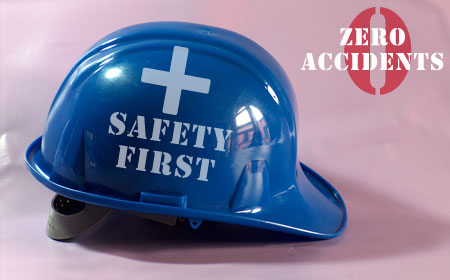June 3-4, 2013
9am – 5pm
Ascott, Makati City (Formerly Oakwood Hotel)
Fee: Php 13,000.00 / person plus 12% VAT
- Early Registration Payment: Ten-Percent (10%) Discount if PAID thirty (30) days before the training date
- Group Discount: Five-Percent (5%) on Three (3) or More Participants
[tabs slidertype=”left tabs”]
[tabcontainer]
[tabtext] About [/tabtext]
[tabtext] Course Outline [/tabtext]
[tabtext] Facilitator [/tabtext]
[tabtext] Bank Details [/tabtext]
[/tabcontainer]
[tabcontent]
[tab]
Objective of the Course:
Project risk has its origins in the uncertainty present in all projects. Known risks are those that have been identified and analyzed, making it possible to plan responses for those risks. Specific unknown risks cannot be managed proactively, which suggests that the project team should create a contingency plan (PMBOK Guide, Fourth Edition).
Project Risk Management includes the process of conducting risk management planning, identification, analysis, response planning, and monitoring and control on a project. The objectives of Project Risk Management are to increase the probability and impact of positive events, and decrease the probability and impact of negative events in the project (PMBOK Guide, Fourth Edition).
With the knowledge and skills acquired at the end of the training program, the trainees will be able to use practical risk management processes, tools and techniques to manage project risks in any size and nature. This will in turn ensure successful project completion meeting project scope, cost and schedule.
The trainees will also work through the proactive approach to threat and opportunity risks — based on a clear understanding of the powerful nature of both qualitative and quantitative approaches to risk management. The training examines threat and opportunity from both a top-down and bottom-up perspective 6 risk management process. Using effective tools, the trainees will learn how to evaluate and respond to risk at the project and task levels.
This course is conducted by an experienced project director and a certified PMP trainer with an extensive exposure to management of R&D, NPI Manufacturing, Construction, and Operational Projects on a global scale with a few well known international technology companies.
Methodology
The course structure is based on PMBOK® Guide from the Project Management Institute, www.pmi.org. Classroom lectures, experience sharing, case studies, using of project simulation tools and quiz are included to enhance the learning process.
Pre-requisite
Pre-requisite to this class is the “Project Management – Fundamentals skills to ensure success” class.
Who must attend:
- Project Managers, Project Leaders, Project Coordinators, Senior Project Managers,
Project Directors, Program Managers, Project Engineers, Engineers, Planners,
Designers, Executives, Consultants, Contractors, Accountants, ICT Professionals and all the project stakeholders that are involve in deliver small to large projects.
[/tab]
[tab]
Course Outline
The course content concentrates on 6 Risk Management processes to manage project
risks throughout Project Management Stages:
- Plan Risk Management – is the process of defining how to conduct risk
management activities for a project. - Identify Risks – is the process of determining which risk may affect the project and
documenting their characteristics. - Perform Qualitative Risk Analysis – is the process of prioritizing risks for further
analysis or action by assessing and combining their probability of occurrence and
impact. - Perform Quantitative Risk Analysis – is the process of numerically analyzing the
effect of identified risks on overall project objectives. - Plan Risk Responses – is the process of developing options and actions to enhance
opportunities and to reduce threats to project objectives. - Monitor and Control Risks – is the process of implementing risk response plans,
tracking identified risks, monitoring residual risks, identifying new risks, and evaluating risks process effectiveness throughout the project.
The training introduces many practical tools, case studies and exercises to enhance learning and use in the next project plan.
Course Topics
- Foundations of Risk Management
- Risk Management processes
- Definition and characteristics of “risk”
- Event (future occurrence)
- Probability (uncertainty)
- Impact (amount at stake)
- Types of risk – Quantification
- Response development
- Response control
- Risk management planning
- Risk identification
- Idea generation tools and techniques
- Quantification Fundamentals
- Probability and impact
- Qualitative
- Quantitative
- Probability analysis
- Analyzing and Prioritizing Risk
- Determining risk tolerances
- Analyzing risks
- Expected-value analysis
- Decision trees
- Prioritizing risks
- Risk response strategies
- Risk acceptance
- Risk avoidance – Risk mitigation
- Transference
- Risk Response control – Execute risk strategies
- Risk evaluation
- Reassessing risk
- Risk documentation
[/tab]
[tab]
Ir. Dr. Mui Kai Yin PhD, MSc, BEng (Hons), MIEM, PEng, PMP
- Director, PMO ASIA SDN. BHD.
- Vice Chairman of IEM Penang Branch (2010-2013)
- Committee of IEM Electronic Engineering Technical Division (2009-2013)
- Certified Project Management Professional
 Dr. Mui graduated from the University of Sunderland, UK with an Honours degree in Bachelor of Engineering (Mechanical Engineering). Thereafter, he continued and completed his postgraduate degree from the University of Warwick, UK with a Master of Science (Advanced Mechanical Engineering). He also holds a Doctor of Philosophy Degree (PhD) in Business Administration and Management from the Atlantic University, USA; with research thesis on Multi-National Corporation Employee Retention – Human Resource Management. He had more than 16 years of experience on managing various projects in the Electronics, Telecommunication, Automotive and Construction industries, and handled more than 50 local and global new product launch projects successfully.
Dr. Mui graduated from the University of Sunderland, UK with an Honours degree in Bachelor of Engineering (Mechanical Engineering). Thereafter, he continued and completed his postgraduate degree from the University of Warwick, UK with a Master of Science (Advanced Mechanical Engineering). He also holds a Doctor of Philosophy Degree (PhD) in Business Administration and Management from the Atlantic University, USA; with research thesis on Multi-National Corporation Employee Retention – Human Resource Management. He had more than 16 years of experience on managing various projects in the Electronics, Telecommunication, Automotive and Construction industries, and handled more than 50 local and global new product launch projects successfully.
Dr. Mui carries a few credentials with him; he is a certified Project Management Professional (PMP®) with the Project Management Institute (PMI®), USA (www.pmi.org). A licensed Professional Engineer with the Board of Engineers, Malaysia (www.bem.org.my), and a corporate member of the Institution of Engineers, Malaysia (www.iem.org.my). He has been an active member of the institution, involved in organizing various technical activities for the local branch members. He is currently the vice chairman of the IEM Penang branch (2010-2013), and also the committee of the IEM Electronic Engineering Technical Division, eETD (2009-2013).
Today, Dr. Mui operates PMO Asia Sdn. Bhd., focusing on providing project management training, coaching and consulting services to the local and oversea clients. He is currently the faculty for the PMO Asia® Project Management Professional (PMP®) exam preparation boot camp, helping aspirant Project Managers to prepare and pass the PMP® credential exam.
[/tab]
[tab]
BANCO DE ORO (BDO)
Account Name:
Aguila Group Companies (AGC) Development Corporation
Account Number:
00 543 801 3291
Bank Address:
Alfaro-Salcedo Village Branch, PCCI Bldg., 118 Alfaro St., Salcedo Village, Makati City 1227, Philippines
Swift Code:
BNORPHMM
[/tab]
[/tabcontent]
[/tabs]











+ There are no comments
Add yours